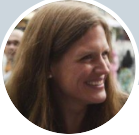Hamse Warfa, on The Future of Digital Identity
Hamse, what did you create?
My co-founders and I created a digital economic identity platform. Harnessing the benefit of blockchain technology, our company provides a secure, portable ID that records and maintains an unlimited number of transactions, economic and otherwise, such as: health data, education records, work history, and even financial support from family members overseas that can show source of stable income. This set of data is owned by the user who creates it, and can be accessed even via basic SMS mobile phones.
This is important because…
… over time, users build a vetted transaction history, which is needed to participate in any form of ownership or transactions in the global economy. While maintaining ownership of their personal information, a user decides what information to share and with whom. It can be accessed anywhere, without any need for physical documentation. It is portable across borders and among organizations.
Why does this matter?
Dignity comes through identity. There is a personal and a professional answer to the question. The personal: I was 12 when my family — successful business owners — fled from war in Somalia to the world’s largest refugee camp in Kenya. I was no longer Hamse: son, brother, friend, aspiring soccer star. I was 0 0 4 3 7 1, a number given so we can collect food rations. There was a ‘reset’ button on our heads.
And the professional dimension?
Lack of verifiable identity is preventing over 2 billion people who live in extreme poverty (refugees, farmers, the homeless) from participating in and contributing to our global economy.
What did you say about your work 10 years ago?
Back then, the problem we’re working on wasn’t well understood: the internet, and the role digital, transaction based identity play in improving someone’s life.
And now you say?
Our lives are shaped by digital accessibility. We need a paradigm shift in how data is owned. Traditional databases have administrators that control. Blockchain does not. It enables the democratization and decentralization of data, finance, and eventually power.
Where do you live?
I live in the Twin Cities with my wife and four children. I came to the US in 1994. San Diego is actually the place where I spent the longest time in my life!
What advice would you give today’s 15-year olds?
First: Embrace adaptation as a way of life! You’ll be operating in a complex world with fast changing situation. Second: Take time to discover who you are. What parts of yourself do you not yet know well?
Something you want to learn or get better at this year?
Understanding and studying more about the work of the future. 65% of future careers are unknown — what does that mean?
What are the top 2 products, innovations, or trends you can’t stop talking about?
Blockchain!! And artificial intelligence.
Who do you want to hear from next in this series and why?
Ashoka Fellow Jeff Dykstra — he works on food security and nutrition across Africa matching talent and expertise with needs. His work is so critical, and I see many intersections with the power of blockchain that I’d love to explore!
Hamse joined Ashoka in 2017. You can read about him and his idea here. And follow him on Twitter at @hamse_warfa and @BanQuApp
This interview was condensed by Ashoka. Follow us at @AshokaUS
